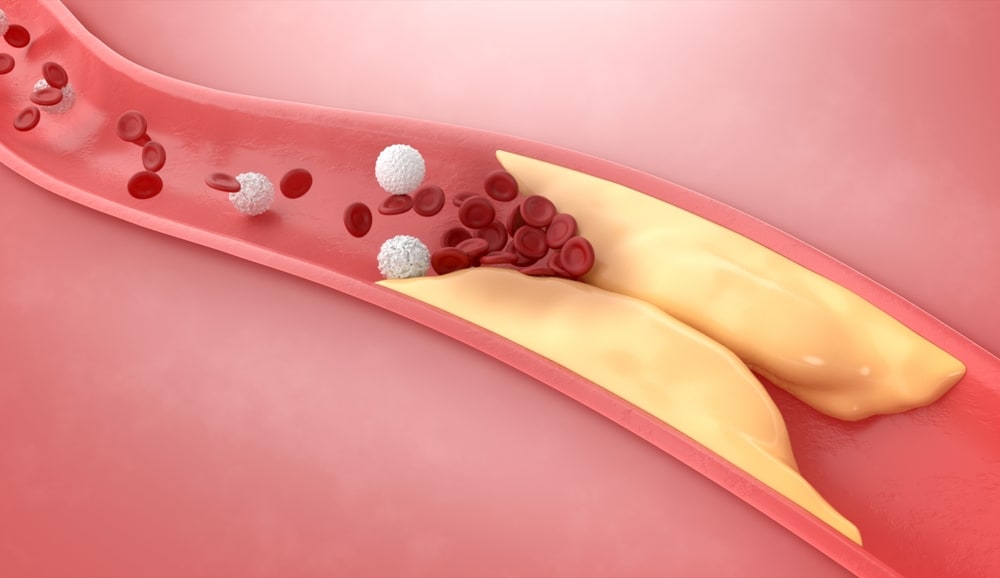Is Your Risk of Thrombosis Written in Your DNA?

Share
Thrombosis, the formation of blood clots in your blood vessels, can have serious, even life-threatening consequences. While lifestyle factors contribute to thrombosis, your genes play a significant role. Understanding your genetic predisposition can empower you to take proactive steps to manage your risk and protect your health.
What is thrombosis?
Thrombosis occurs when blood clots form within blood vessels, obstructing blood flow. This can lead to:
- Deep vein thrombosis (DVT): Blood clots in the deep veins, usually in the legs, which can cause pain, swelling, and redness.
- Pulmonary embolism (PE): A blood clot that travels to the lungs, causing shortness of breath, chest pain, and potentially life-threatening complications.
- Stroke: A blood clot that blocks blood flow to the brain, leading to neurological damage.
- Heart attack: A blood clot that obstructs blood flow to the heart, potentially causing permanent heart damage.
Genetic Factors in Thrombosis: F5, F2, and MTHFR Genes
Inherited thrombophilia, a condition characterized by an increased tendency to form blood clots, can be caused by mutations in genes that regulate the coagulation system. These mutations can disrupt the delicate balance of clotting factors, increasing the likelihood of developing thrombosis.
Genofit's DNA Thrombotic Risk Test analyzes specific gene variants associated with an elevated risk of thrombosis:
- Factor V Leiden (F5 gene mutation): This mutation leads to Factor V Leiden, a variant of Factor V that resists inactivation by natural anticoagulants, increasing clotting risk.
- Prothrombin G20210A (F2 gene mutation): This mutation results in elevated prothrombin levels, a key protein involved in blood clotting, contributing to an increased risk of thrombosis.
- MTHFR gene mutations (C677T and A1298C): These mutations can lead to elevated homocysteine levels, which have been linked to an increased risk of thrombosis, particularly when folate levels are low.
Genofit’s DNA Thrombotic Risk Test
Genofit offers a DNA Thrombotic Risk Test that examines variants in the F5, F2, and MTHFR genes. Using a simple mouth swab, our test can clarify whether you possess one or more of the mutations linked to an above-average tendency to clot.
Key Benefits
- Personalized Risk Assessment: Identify if you have a genetic predisposition to thrombosis based on your F5, F2, and MTHFR genes.
- Informed Decision-Making: Make informed choices about lifestyle modifications, medication use, and family planning with your doctor.
- Early Detection: Identify your risk before a thrombotic event occurs, enabling early intervention and potentially preventing serious complications
Take Control of Your Health with Genofit
Being aware of one’s genetic susceptibility to thrombosis can make a significant difference in prioritizing health. By identifying these variants early, you have the opportunity to adjust your lifestyle, seek regular checkups, and adopt measures that reduce the chance of experiencing a severe clotting event.
Ready to learn more about your risk?
Click here to learn more about Genofit's DNA Thrombotic Risk Test
